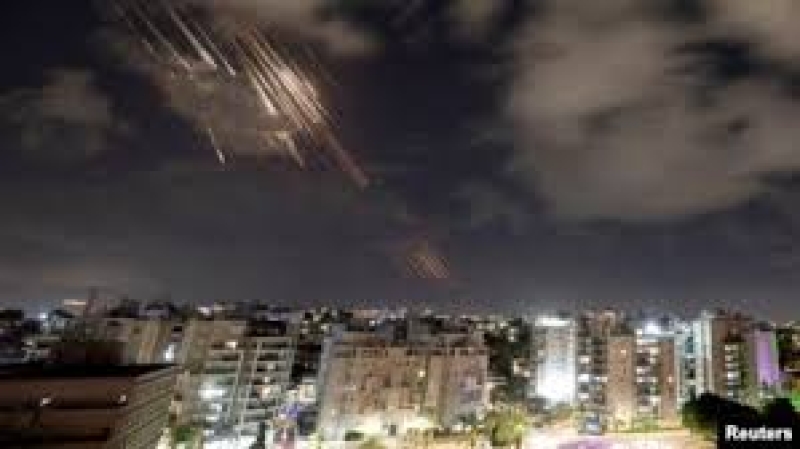- Guterres Urges Leaders to Act as UNGA Week Begins |
- BNP to go door to door for hearts and votes |
- Chittagong port tariffs increased up to 50 per cent |
- Rising Heat Cost Bangladesh $1.8 Billion in 2024 |
- Stocks extend gains; turnover drops in Dhaka, rises in Ctg |
U.S. Expands Sanctions on Iran After Missile Attack on Israel

On Friday, the United States unveiled a new wave of sanctions targeting Iran's energy sector, a response to the country's missile attack on Israel on October 1, in which approximately 180 missiles were launched. This offensive was characterized by Iran as retaliation for recent Israeli strikes against Hezbollah in Lebanon, which has been firing rockets into Israel since the outbreak of conflict in Gaza.
The latest sanctions include restrictions on Iran's so-called “ghost fleet” of vessels and associated companies operating from jurisdictions like the United Arab Emirates, Liberia, and Hong Kong. These entities are accused of facilitating the clandestine sale of Iranian oil to buyers in Asia.
In addition, the U.S. State Department designated a network of companies based in Suriname, India, Malaysia, and Hong Kong for allegedly coordinating the sale and transport of petroleum and petroleum products from Iran.
Current U.S. law allows for sanctions against Iran’s energy sector and foreign entities involved in the sale and transport of Iranian oil. However, such measures can be contentious, as limiting oil supplies may lead to increased prices for global commodities essential to the U.S. and its allies.
Jake Sullivan, the U.S. National Security Advisor, emphasized that these sanctions are intended to further restrict Iran's financial resources, which are used to support missile programs and terrorist groups that pose threats to the U.S. and its allies.
These sanctions will prevent the targeted entities from accessing the U.S. financial system and prohibit American citizens from engaging with them.
Historically, Israel and Iran have engaged in a covert conflict, but recent escalations, including direct military actions, risk drawing the region closer to broader war. While Iran attempted a missile strike against Israel in April, many projectiles were intercepted by a U.S.-led coalition, and others malfunctioned.
Treasury Secretary Janet Yellen affirmed on Friday that the United States "will not hesitate to take further action to hold Iran accountable," signaling a commitment to intensifying measures against Iranian aggression.

